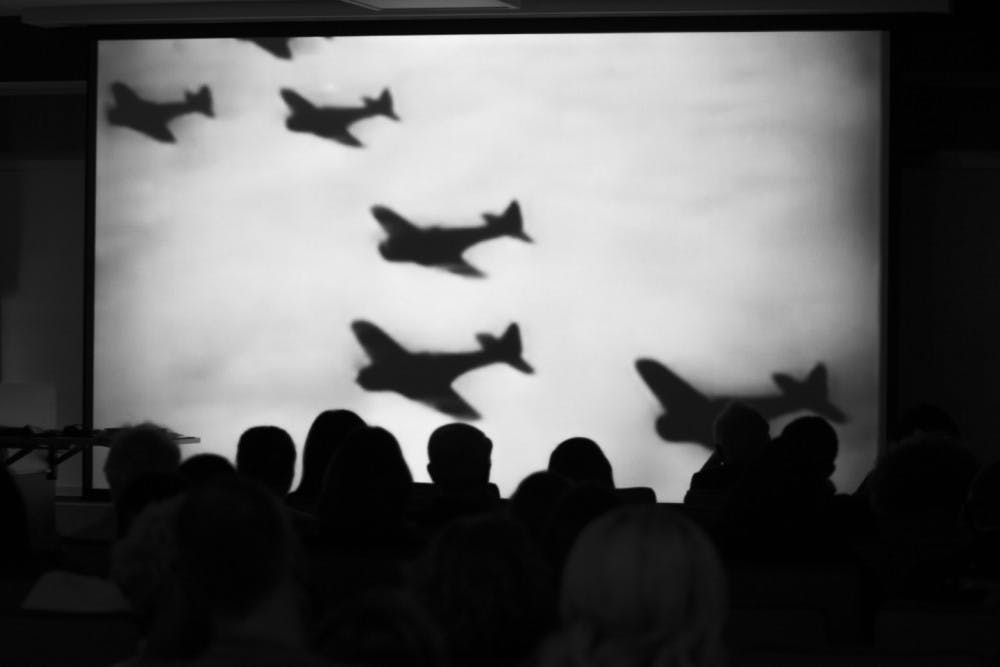Though in unfamiliar territory, USC film professors found the right audience as they discussed the importance of early newsreels at the School of Journalism and Mass Communications early Friday afternoon.
With the 75th anniversary of American involvement in World War II approaching, assistant history professor Kent Germany and film professor Mark Cooper convened to discuss the role newsreels played in informing the pre-television American public. They brought with them cherished footage provided by Greg Wilsbacher, curator of USC’s Fox Movietone News Collection, which comprises over 11 million feet of film produced between 1919 and 1944.
Among the clips Wilsbacher screened were the destruction of the USS Shaw, film of Naval vessels being salvaged and rebuilt and a rare color shot of the sinking of USS Arizona taken from USS Solace. Cooper narrated a portion of John Ford’s 1943 film “December 7th,” which took a narrative role in showing American civilians footage of the Pearl Harbor attack.
Before his presentation, Wilsbacher spoke to the crowd about the origin of American newsreels such as those in the USC collection. Before the advent of television news, film producers made 10-minute reels of ongoing news for American theaters. The reels were then screened prior to features produced by the same company that produced the reel.
“If you wanted to hear and see the sights of the world, and the news that was going on,” Wilsbacher said, “the only way to do that before television came along was to go to the theater.”
Soon after the screening of Ford’s film, Wilsbacher introduced the guest of the afternoon, Rock Hill radio broadcaster Manning Kimmel.
As the grandson of the former Commander-in-chief of the United States Navy’s Pacific Fleet, Kimmel is well versed in the events of Dec. 7, 1941.
Following the Imperial Japanese attack on Pearl Harbor, Kimmel’s grandfather, Admiral Husband Kimmel, was largely held accountable for American casualties. The younger Kimmel stated that the blame lies instead with Washington officials who failed to deliver crucial intelligence to Hawaii in time for U.S. forces to prepare for battle.
Despite this, the United States government relieved Adm. Kimmel and Lieutenant General Walter Short of the United States Army of their duties shortly after the attack. The former retired in 1942 with the reduced title of Rear Admiral and, for the remaining 26 years of his life, fought for exoneration. His fight continues today, through his sons and nephews.
In 1999, the United States Senate passed a resolution to exonerate Kimmel and Short and restore their full ranks. However, none of the three presidential administrations which have come and gone since the resolution passed have acted upon it.
With the mention of the 1999 resolution, Kimmel encouraged the gathered crowd to take action. He promoted a book about the case against his grandfather’s and Short’s demotions and said a petition to have the resolution signed is available online. The key to presidential pardon, Kimmel told the crowd, lies with the ability to penetrate the “tight circle” of information surrounding Washington insiders.
“If that circle isn’t broken, we can’t get through,” Kimmel said.
Natalie Hungate, a third-year international studies and German student, said she attended the event to learn more about the war endured by her grandfather, who flew bombing missions over Nazi Germany in World War II.
“For me, definitely, it’s really interesting to learn about the time period he grew up in and all of the work he did,” Hungate said.

